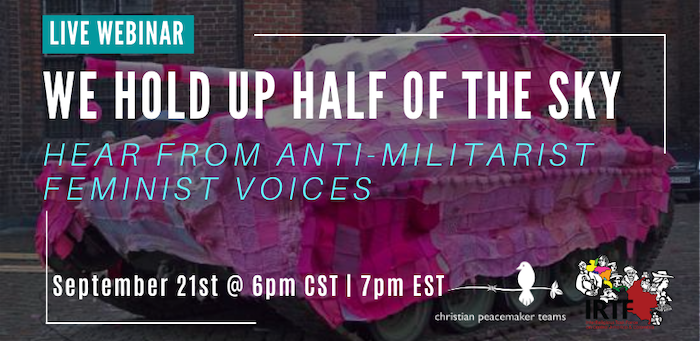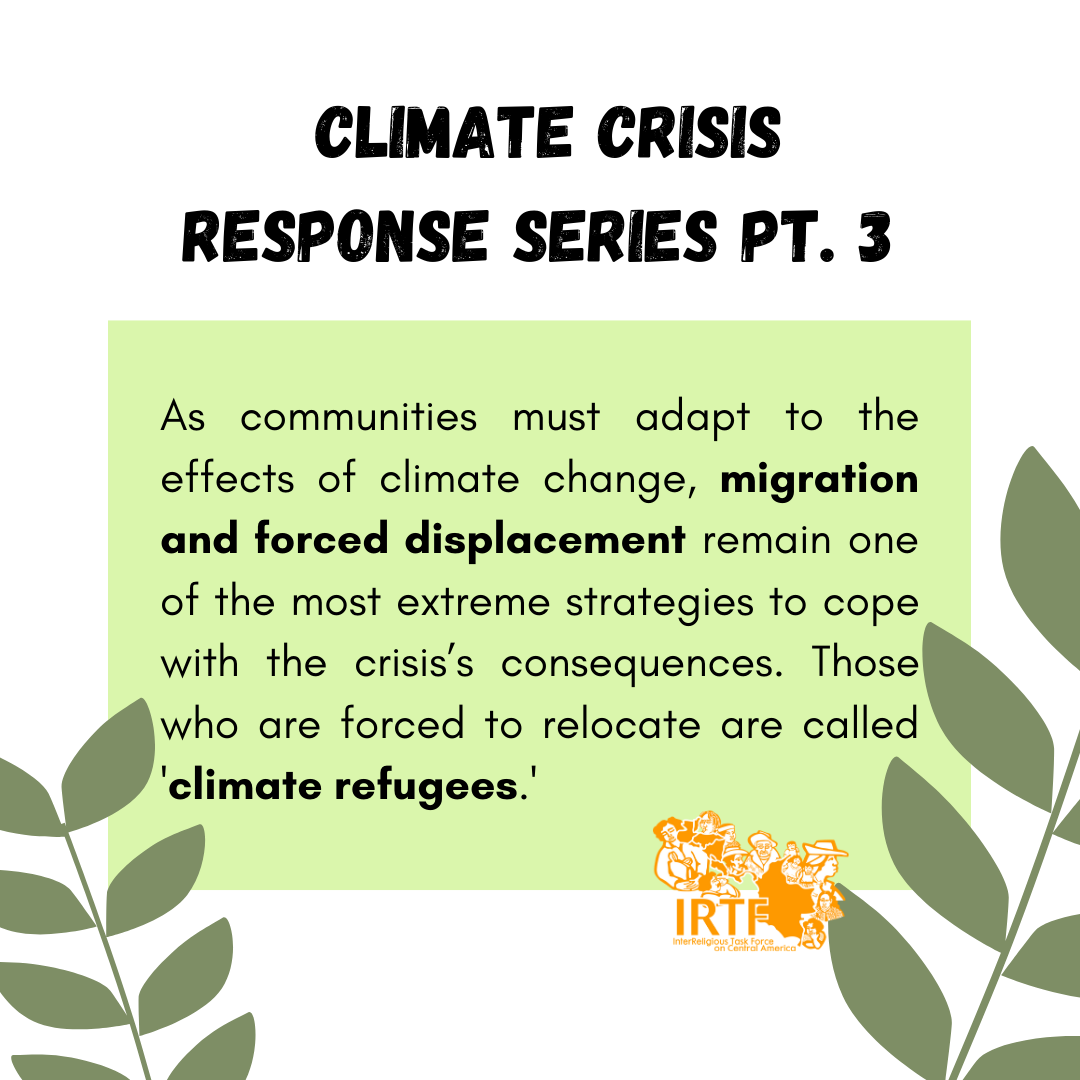- Home
- About Us
- Issues
- Countries
- Rapid Response Network
- Young Adults
- Get Involved
- Calendar
- Donate
- Blog
You are here
Anti-Militarism: News & Updates
Event
September 29, 2020
Join this panel discussion with four Canadian immigration and asylum attorneys who will help you identify when a client with little chance of success in the U.S. may have a better chance of gaining status in Canada. Topics covered will include: 1- Overview of possible immigration options available, an update on the US-Canada Safe Third Country Agreement, border restrictions, and changes to asylum eligibility for individuals who commenced an asylum claim in the U.S.; 2- Obstacles to Canadian immigration for clients with past criminality; 3- Discussion of grounds of asylum more readily granted in Canada compared to the U.S. (such as PSGs relating to family, gender-based harm, or forced gang recruitment).
Event
September 28, 2020
Monday, September 28 - 10am in Colombia, 11am (ET) in Washington D.C.
Conversation CONVIDA20: "Colombia cries out for Life, Peace and Justice"
Panelists: Diego Pérez and Omar Fernández
Testimonies of Resistance Río Naya and Afavit
Registrations at: bit.ly/pazcolombia20
Event
September 27, 2020
Celebrating our 30th year as an organization, Illinois School of the Americas Watch (ILSOAW) and the SOA Watch Staff Collective invite you to join us for a virtual gathering on Sunday, September 27th at 2pm-3:30pm Eastern / 1pm-2:30pm Central / 11am-12:30pm Pacific. The afternoon event consists of music, conversation, and members of the SOA Watch Staff Collective will share more about our work to end US-led and backed state violence; dismantle Border Imperialism; and stand with communities in Latin America organizing against the militarization of their lands and lives under a neoliberal model that values profit over people and the environment. The event is bilingual (Spanish and English), and interpretation will be provided.
News Article
September 25, 2020
The Jesuit Massacre, November 16, 1989 at the University of Central America (UCA) in San Salvador. An elite commando unit killed the six priests, their housekeeper (Elba) and her daughter (Celina) at the priests’ campus residence. The military tried to make the massacre appear as though it had been carried out by leftist guerrillas. Nine members of the military were initially put on trial, but the court absolved seven of them. Two officers served short sentences in El Salvador, but were released in 1993 after passage of an amnesty law. Fast forward to 2020: A court in Spain sentenced former Salvadoran colonel Inocente Orlando Montano to 133 years in prison. Arnau Baulenas, a lawyer with the Human Rights Institute at the University of Central America said Montano’s conviction and sentence in Spain showed that the orders came from high up. He blames a lack of political will and resistance within El Salvador’s justice system for being unable to achieve similar outcomes in his own country.
Event
September 21, 2020
The increasing push for global militarization directly impacts billions of women and gender nonconforming folks around the world each day. These voices, experiences and perspectives are often silenced when approaching solutions to this crisis. Hear about how militarism is experienced and about the stories of resistance to violence from several communities accompanied by Christian Peacemaker Teams (CPT). CPT and the InterReligious Task Force on Central America & Colombia (IRTF) are partnering to bring several powerful voices together for a live webinar conversation on anti-militarism.
News Article
September 14, 2020
The arc of the moral universe is long, but it bends toward justice. How long? This time, 30 years. Col. Montano led an elite U.S.-trained army unit that massacred six Jesuit priests, their housekeeper, and her teenage daughter during El Salvador's 12-year civil war. More than 70,000 men, women, and children died during the Salvadoran Civil War. One-million refugees (20% of the country’s population!) fled seeking safety, most of them to the US. The Salvadoran Truth Commission investigation concluded that 85% of the more than 22,000 atrocities that were reported during the war were committed by the U.S.-backed military regime and associated forces. And what was does the US government say now in hindsight? “One of fabulous achievement” is how Elliott Abrams, the Reagan administration’s "death squad ambassador" in Central America, has hailed the US record in El Salvador. Today, Elliott Abrams works as the Trump administration's special representative for Iran and Venezuela.
News Article
September 4, 2020
Governments all over the world can and must take action right now to reduce the amount of people forcibly displaced because of climate change. According to a United Nation’s Report, we, as a global community, still have a window of opportunity to establish policies and strategies to ameliorate both the issues leading to climate migration and the issues directly caused by climate migration.
RRN Letter
August 23, 2020
We are outraged at the killing of two Nasa Indigenous men, José Abelardo Liz Cuetia, age 34, and José Ernesto Rivera, on August 13 near Corinto in Cauca Department. The two men were shot and killed during a two-day military and police campaign to forcibly remove members of the Nasa Indigenous group from land that they claim is their ancestral territory. The security forces were deployed to fulfill an eviction order by Martha C. Velasco Guzman, mayor of Corinto, which Nasa leaders characterize as “irresponsible and without prior consult.” Legal ownership of the land is claimed by Incauca sugar refinery, a company owned by Carlos Ardila Lülle, one of the wealthiest entrepreneurs in Colombia.
Nasa Indigenous men Julio Cesar Tumbo and Leónidas Perdomo were seriously injured in the attack.
Content Page
August 20, 2020
ALERT and PETITION for the life of Iván Cepeda Castro, his family, lawyers, and collaborators due to the intensification of death threats and a call for compliance of the Colombian Supreme Court of Justice’s decision.
News Article
August 17, 2020
At least 212 land and environmental defenders were murdered last year — the highest number since the group Global Witness began gathering data eight years ago. Some 40% of those killed were Indigenous peoples. Today on Democracy Now!, we get an update from Honduras, where the Afro-Indigenous Garífuna community continues to demand the safe return of five Garífuna land defenders who were kidnapped by heavily armed men who were reportedly wearing police uniforms and forced them into three unmarked vehicles at gunpoint. This was the latest attack against the Garífuna community as they defend their territory from destructive projects fueled by foreign investors and the Honduran government. “We are in danger daily — all the leaders of the Garífuna community, all the defendants of the land in Honduras,” says Carla García, international relations coordinator at the Black Fraternal Organization of Honduras (OFANEH).



